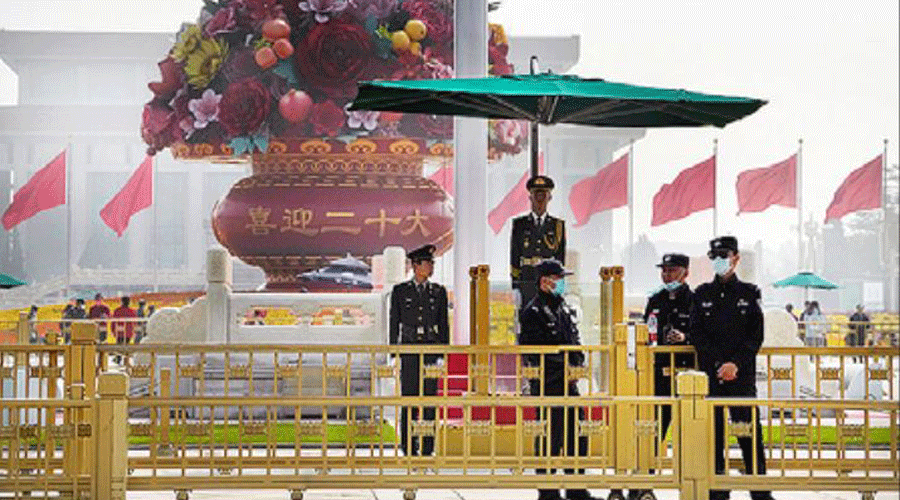They lounge in folding chairs, perch on traffic bollards or pace small circles to keep warm. They are stationed every 100 feet or so, keeping watch over their designated patch of Beijing street. Their bright red wind-breakers and matching armbands spell out their roles as “Neighborhood Security Volunteers”.
Their mission is straightforward: guarantee that nothing disrupts an all-important Chinese Communist Party congress that begins Sunday, where the top leader, Xi Jinping, is expected to claim a third term.
The volunteers, who have blanketed Beijing in recent days, are perhaps the most obvious element of the security blockade that China has imposed on the city. In a country where control is paramount, every preparation is designed to ensure that any perceived threat or wrinkle — from the coronavirus to unsightly litter — is eliminated.
The authorities have also blocked anyone who has travelled to an area with even one coronavirus infection from entering the city. Postal officials must check the identification documents of everyone mailing anything to Beijing.
Local officials have pledged that the volunteers, working alongside militia members and security officers, will sniff out “unstable elements”, such as people with complaints against the government, and “weave a tight and three-dimensional web of social prevention and control”.
“Until the big meeting is over, there will be more people patrolling. Police, all kinds,” one volunteer in her 50s, Li Wenge, said as she hunched on a stool near Beijing’s 13th-century Drum Tower, watching a group of middle-aged men play roller hockey.
Li motioned to her right, where two red-clad figures sat at the tower’s foot, then to her left, as another pair strolled by. “We’re all over this place.”
The meeting, officially called the 20th National Congress, is a secretive, onceevery-five-years conclave where the country’s next leaders are anointed. During his 10 years in power, Xi has consolidated authority more completely than any Chinese leader since Mao Zedong. He has largely wiped out independent civil society, imprisoned human rights lawyers and expanded state surveillance into evermore corners of daily life.
The fortress around Beijing as he prepares for a precedent-defying five more years crystallises how successful he has been. Officials in other provinces have pledged any necessary measures, including lockdowns, to prevent the spread of the coronavirus, “ especially to Beijing”.
A ministry of public security official said the authorities had arrested more than 1.4 million criminal suspects nationwide since the end of June, helping to “create a safe and stable political and social environment for the successful convening of the 20th Party Congress”.
New York Times News Service











